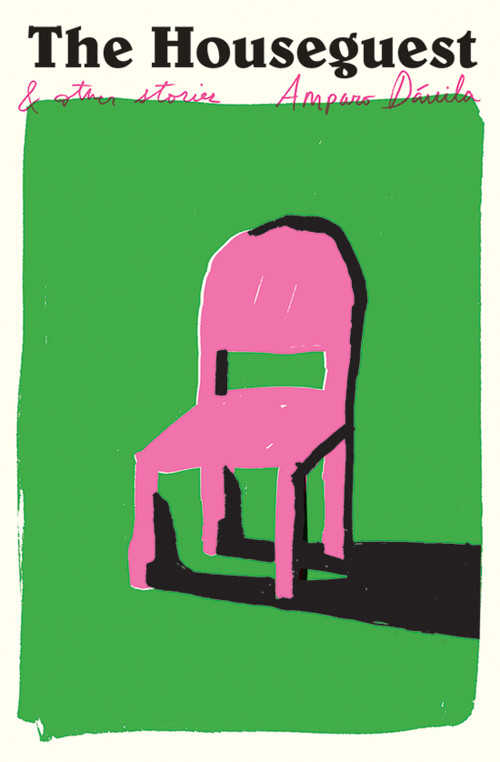The Houseguest & Other Stories: Fiction by Amparo Dávila
Reviews
By Robert Rea
Last year saw the English translation of Cristina Rivera Garza’s The Iliac Crest. Like many Gothic novels, this one opens on a dark and stormy night. At his doorstep a doctor finds his former lover and a mysterious woman who claims to be the real-life author Amparo Dávila. Virtually unheard of stateside, Dávila has earned a lasting place in Mexican literature. Who’s to say if Garza’s book gave the publishing world the nudge it needed, but now we have a long-overdue translation of Dávila. So hats off to New Directions for getting behind Mexico’s high priestess of horror.
The world Dávila imagines weighs on the brain like some sort of delirium. Her stories begin soberly enough—an old guy cleaning out an apartment (“Moses and Gaspar”), a shy girl sitting at the family table (“The Breakfast”)—but long-buried doubts and unspoken fears soon bubble to the surface. More than a few blindside you with a plot twist worthy of M. Night Shyamalan, although Dávila leans more toward it’s-all-in-your-head scary than supernatural scary. Attention, fans of the psychological slow burn: this is one of those books that demands a special spot on your shelf—alongside heavyweights like Shirley Jackson and Stephen King.
Dávila has perfected the trick of withholding key facts, then doling them out piecemeal. Which is fine, because she nails the kind of surprise ending that lingers well after the last word. The title story, for one, jangles your nerves from the get-go: “I’ll never forget the day he came to live with us. My husband brought him home from a trip.” That unidentified pronoun hangs around like so much unprocessed trauma, as the-man-who-wouldn’t-leave relentlessly torments his hostess. Others conceal some awful secret that the reader only gradually grasps. “Oscar” ends with a bang that’s the best of its ilk since Carrie burned down the prom. “The Cell” features a squirrelly fiancée with something to hide, though the source of her troubles is only hinted at, never spelled out. Whether the characters come clean or play things intriguingly close to the vest, Dávila’s knack for pacing makes the ride itself every bit as fun as the swerve at the end.
There’s much more here than shock value. “The Houseguest,” “Musique Concréte,” and “The Last Summer” are all about women unhappy in marriage. Dávila uses their stories to make a larger point about how the expected roles of wife, mother, and homemaker can seriously fuck with your head, and she trusts us to get the message without hammering it home too hard. We learn enough about the characters and their baggage to invest in what happens next, but once the twist is revealed, it works not because it’s unexpected but because it is as inevitable as it is terrifying. Yet Dávila writes just as convincingly about men—young, old, rich, poor, you name it—and she tends to catch them at the raw edge of sanity. In “The Funeral,” a successful businessman wakes up in a hospital, unsure how he got there and unable to speak. In “Tina Reyes,” a skittish factory worker heads home on foot while being followed by an unwanted admirer. And, just so you know, the same low-frequency terror hums through all twelve stories like white noise in the background.
At 135 pages this little book of stories is light in the hands—too light, some might say—but fortunately Dávila doesn’t need much room to ratchet things up. The shortest of them all—“Haute Cuisine”—might be the purest example of the highly compressed horror this collection delivers. “When I hear the rain beating against the windows, their screams would come back to me once more—those screams that would stick to my skin as if they were leeches,” the first sentence reads. “They would rise in pitch as the pot heated and the water came to a boil. I see their eyes too, little black beads popping out of their sockets as they were cooked.” It’s peak Dávila, with all the table-setting that shows her mastery of the short form—the cryptic pronoun, the domestic discomfort, a vaguely sinister vibe—which builds toward a nightmarish conclusion in a matter of two and a half pages. The best-worst part of a book like this is it leaves you wanting more. Truth is, a shamefully neglected writer like Dávila deserves more love than she gets with this slim volume, but hey, at least it’s a start.
Robert Rea is the deputy editor and web editor for SwR.
More Reviews



